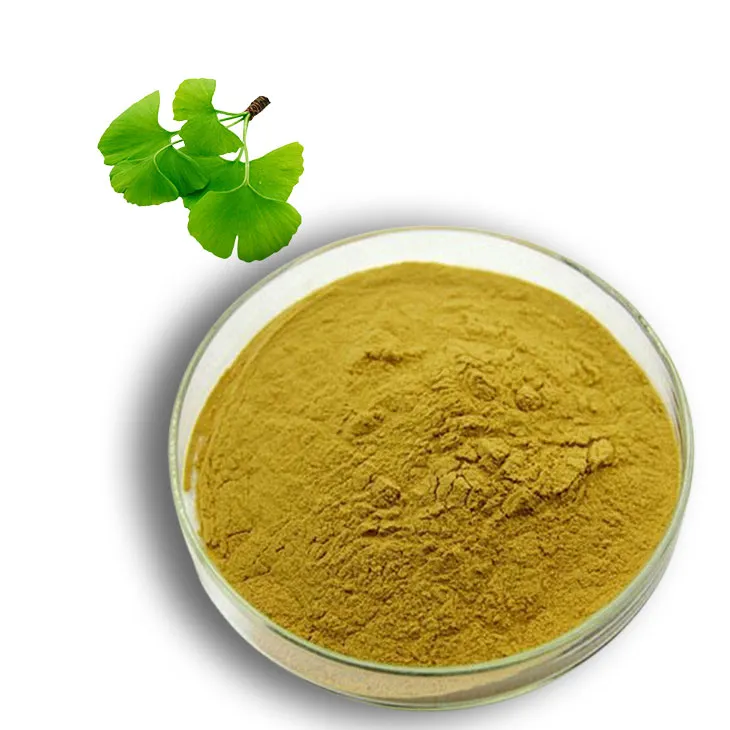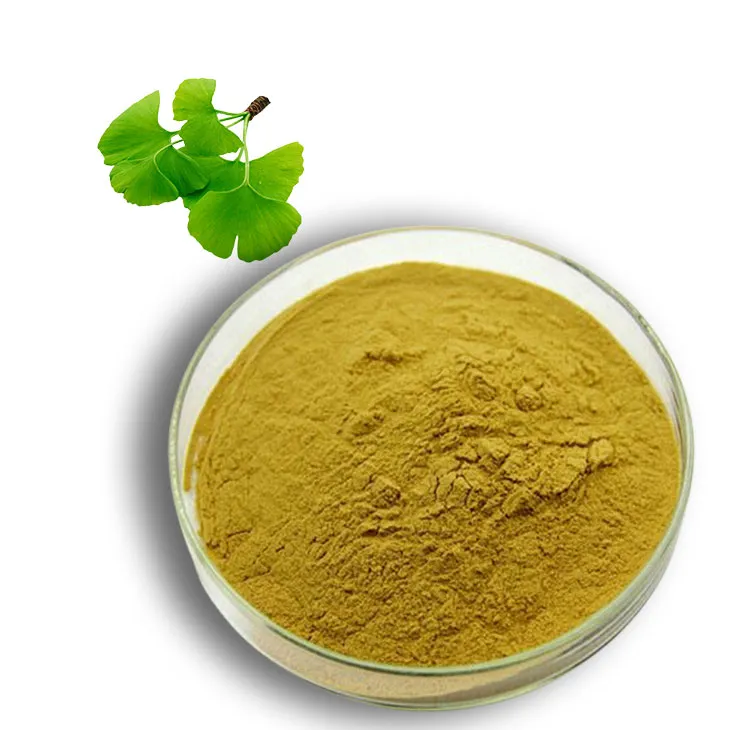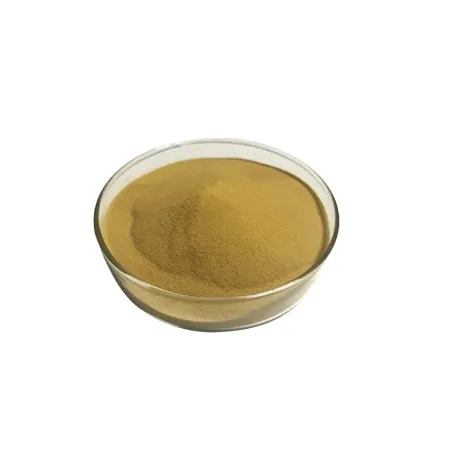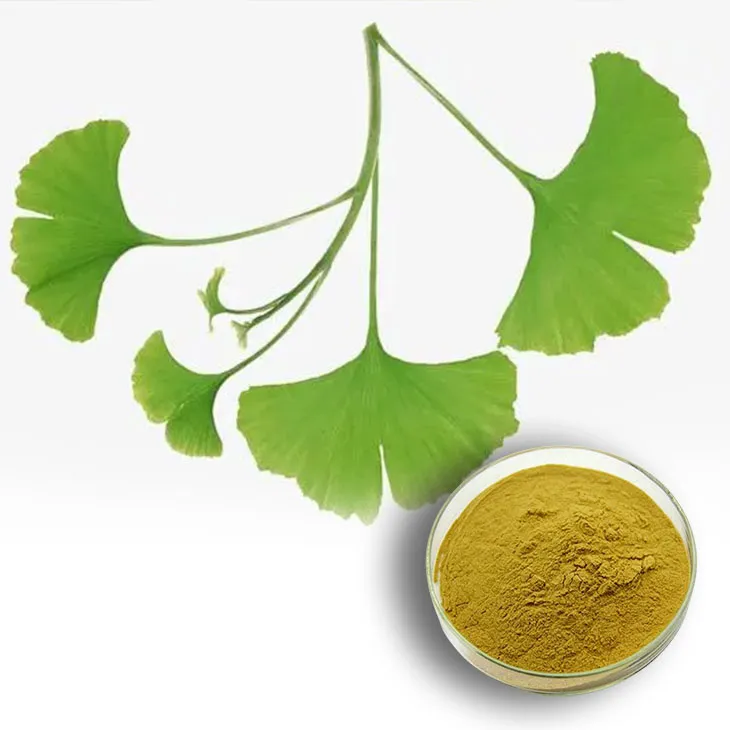- 0086-571-85302990
- sales@greenskybio.com
Ginkgo biloba extract: The herbal product trend you should know.
2024-12-10

1. Introduction to Ginkgo biloba
The Ginkgo biloba tree is a remarkable and ancient species, often referred to as a "living fossil." It has a long history of existence on our planet, dating back millions of years. This unique tree is native to China and has been introduced to various parts of the world over time. The Ginkgo biloba extract is derived from its leaves, which are rich in a variety of bioactive compounds.

2. Composition of Ginkgo biloba extract
Ginkgo biloba extract is a complex mixture. It contains flavonoids, terpenoids (such as ginkgolides and bilobalide), and other phenolic compounds.
- Flavonoids: These are a class of plant metabolites known for their antioxidant properties. In Ginkgo biloba, flavonoids contribute to its potential health - promoting effects. They can scavenge free radicals in the body, which are unstable molecules that can cause damage to cells.
- Terpenoids: Ginkgolides and bilobalide are unique terpenoids found in Ginkgo biloba. Ginkgolides have been shown to have an impact on platelet - activating factor (PAF). PAF is involved in various physiological and pathological processes, including inflammation and thrombosis. By modulating PAF, ginkgolides may play a role in reducing inflammation and preventing abnormal blood clotting.

3. Neuroprotection and brain health
One of the most studied aspects of Ginkgo biloba extract is its potential role in neuroprotection.
- As we age, our neurons are at risk of damage from various factors such as oxidative stress, inflammation, and reduced blood supply. The antioxidant and anti - inflammatory properties of Ginkgo biloba extract may help protect neurons from these harmful effects.
- Studies in animal models have suggested that the extract can enhance cognitive function. It may improve memory, learning ability, and attention. However, it should be noted that while these results are promising, more research is needed in human subjects to fully understand the extent of its cognitive - enhancing effects.
- There is also evidence to suggest that Ginkgo biloba extract may be beneficial in neurodegenerative diseases. For example, in Alzheimer's disease, which is characterized by the progressive loss of neurons and cognitive decline, the extract may slow down the progression of the disease. It may do this by reducing amyloid - beta plaque formation, which is one of the hallmarks of Alzheimer's.

4. Improved blood flow
Ginkgo biloba extract has been associated with improved blood flow, both in the brain and throughout the body.
- At the vascular level, it can cause vasodilation, which means it relaxes the blood vessels, allowing for a greater volume of blood to flow through. This is beneficial as it ensures that oxygen and nutrients are efficiently delivered to all parts of the body.
- In the brain, improved blood flow can enhance cerebral perfusion. This is important for maintaining normal brain function, as the brain is a highly metabolically active organ that requires a constant supply of oxygen and glucose. Insufficient blood flow to the brain can lead to symptoms such as dizziness, confusion, and in severe cases, stroke.
- Moreover, better blood flow may also help in reducing the risk of cardiovascular diseases. By improving the circulation, the extract may prevent the formation of atherosclerotic plaques in the blood vessels, which are a major cause of heart attacks and strokes.

5. Other potential health benefits
Besides neuroprotection and improved blood flow, Ginkgo biloba extract may offer other health benefits.
- It has been investigated for its potential anti - inflammatory effects in various parts of the body. Inflammation is a common underlying factor in many chronic diseases, such as arthritis. By reducing inflammation, the extract may help alleviate the symptoms associated with these diseases.
- Some studies have also suggested that Ginkgo biloba extract may have a positive impact on eye health. It may be beneficial in conditions such as macular degeneration, which is a leading cause of vision loss in the elderly. The extract may work by improving blood circulation in the retina and protecting the retinal cells from damage.
- There is also some evidence indicating that it may have a role in improving the immune system. A healthy immune system is crucial for fighting off infections and maintaining overall health. However, more research is required to fully understand how the extract interacts with the immune system and whether it can be used as a natural immune - booster.
6. Forms of Ginkgo biloba extract in the market
Ginkgo biloba extract is available in various forms in the market.
- Capsules and tablets: These are the most common forms. They are convenient for consumers to take on a daily basis. The dosage of the extract in these forms can vary, so it is important to follow the recommended instructions on the product label.
- Tinctures: Tinctures are liquid extracts of Ginkgo biloba. They are often made by steeping the ginkgo leaves in alcohol or a mixture of alcohol and water. Tinctures may be absorbed more quickly in the body compared to capsules or tablets, but they may also have a stronger taste.
- Tea: Ginkgo biloba tea is another option. It is made by brewing dried ginkgo leaves. Drinking ginkgo tea can be a relaxing and potentially health - promoting way to consume the extract. However, the concentration of the active compounds in tea may be lower compared to other forms.
7. Precautions and side effects
While Ginkgo biloba extract is generally considered safe for most people when taken in appropriate doses, there are some precautions and potential side effects to be aware of.
- It may interact with certain medications. For example, it can increase the risk of bleeding when taken with blood - thinning medications such as warfarin. Therefore, if you are taking any medications, it is essential to consult your doctor before starting to take Ginkgo biloba extract.
- Some people may experience mild side effects such as headache, dizziness, or gastrointestinal discomfort. If these symptoms occur, it is advisable to stop taking the extract and consult a healthcare provider.
- Pregnant and breastfeeding women should avoid taking Ginkgo biloba extract, as there is not enough research to determine its safety during pregnancy and lactation.
8. Research limitations and future directions
Although there has been a significant amount of research on Ginkgo biloba extract, there are still some limitations.
- Many of the studies conducted so far have been in vitro or in animal models. While these studies provide valuable insights, the results may not always translate directly to humans. More high - quality human clinical trials are needed to confirm the efficacy and safety of the extract.
- The optimal dosage of Ginkgo biloba extract for different health conditions has not been clearly defined. Different studies have used different dosages, which makes it difficult to standardize its use.
- In the future, research could focus on further elucidating the mechanisms of action of the extract. Understanding exactly how it exerts its effects on the body at the molecular level could lead to the development of more targeted and effective therapies.
- There is also a need for long - term studies to evaluate the long - term effects of Ginkgo biloba extract on health. This is especially important for its potential use in chronic diseases and for maintaining overall well - being over time.
9. Conclusion
Ginkgo biloba extract is an emerging trend in the field of herbal products. With its potential benefits for neuroprotection, improved blood flow, and other aspects of health, it has attracted a great deal of attention from both the scientific community and the general public. However, it is important to approach it with caution, taking into account the potential side effects and interactions with medications. As research continues to unfold, we can expect to gain a more comprehensive understanding of this ancient herbal extract and its role in promoting human health.
FAQ:
What is Ginkgo biloba extract?
Ginkgo biloba extract is a complex mixture of substances obtained from the ginkgo tree. It has become a significant trend in herbal products.
What are the potential benefits of Ginkgo biloba extract for brain health?
Research shows that it may play a role in neuroprotection. It can protect neurons from damage, thus potentially supporting brain health.
How does Ginkgo biloba extract affect blood flow?
It has been associated with improved blood flow. This can lead to better delivery of oxygen and nutrients throughout the body.
Is Ginkgo biloba extract widely studied?
Yes, it is an interesting area of study in the field of herbal medicine, which indicates that it is being widely studied.
Can everyone use Ginkgo biloba extract?
While it has potential benefits, not everyone may be suitable to use it. People with certain medical conditions or those taking specific medications should consult a healthcare provider before using it.
Related literature
- Ginkgo biloba Extract: Biological, Medicinal, and Toxicological Effects"
- "The Pharmacology of Ginkgo biloba Extract"
- "Ginkgo biloba Extract in the Prevention and Treatment of Cognitive Decline and Dementia"
- ▶ Hesperidin
- ▶ citrus bioflavonoids
- ▶ plant extract
- ▶ lycopene
- ▶ Diosmin
- ▶ Grape seed extract
- ▶ Sea buckthorn Juice Powder
- ▶ Beetroot powder
- ▶ Hops Extract
- ▶ Artichoke Extract
- ▶ Reishi mushroom extract
- ▶ Astaxanthin
- ▶ Green Tea Extract
- ▶ Curcumin Extract
- ▶ Horse Chestnut Extract
- ▶ Other Problems
- ▶ Boswellia Serrata Extract
- ▶ Resveratrol Extract
- ▶ Marigold Extract
- ▶ Grape Leaf Extract
- ▶ blog3
- ▶ blog4
- ▶ blog5
-
Pure 85% Tomentil Extract.
2024-12-10
-
Lemon Juice Powder
2024-12-10
-
melatonin extract
2024-12-10
-
Apricot Powder
2024-12-10
-
Cat Claw Extract
2024-12-10
-
Rose Hip Extract
2024-12-10
-
Kelp Extract Powder
2024-12-10
-
Uridine-5'-monophosphate Disodium salt
2024-12-10
-
Kupilu Extract
2024-12-10
-
Alisma Extract
2024-12-10
-
Propolis Extract Powder
2024-12-10





















